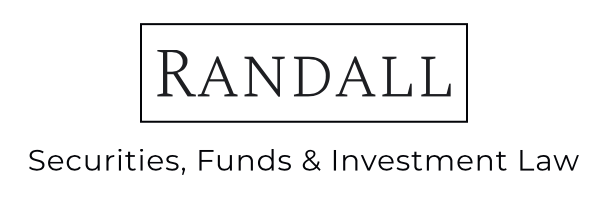How Can You Raise Money Without Registering With The SEC?
What is Rule 506 or a REG D Offering?
Do most funds or businesses raise money using Section 506 of Regulation D?
YES! You can raise money without “registering” with the SEC. Here’s how.
Using Exemptions To Raise Money or Start a Fund
Under federal securities law, any time you offer or sell a security then that offer or sale must either be registered with the SEC or meet some kind or exemption. For the sake of clarity, the SEC considers raising money for a start-up, getting investment money for a fund (hedge fund, private equity fund, etc.) or real estate syndication, an offer or sale of a security. Also, convertible notes, SAFE agreements, and subscription agreements all typically involve the sale of a security. Bottom line, all of these activities need to either be registered with the SEC or meet some kind of exemption.
The key here is meeting an exemption. Under Regulation D a fund or company can raise money or take on investors without having to fully register with the SEC. (Regulation A and Regulation CF are also commonly used to raise money without having to register with the SEC but aren’t discussed in this article but we can help you with those as well!) There are many exemptions to the registration requirement and several ways to raise money using an exemption but under Regulation D the two most common exemptions used are the 506(b) and 506(c) exemptions. Under these two exemptions, most private businesses and investment funds (including hedge funds, private equity funds, real estate investor groups, etc.) have raised money and complied with federal securities law. These two common exemptions are explained more fully below.
Randall & Associates has helped dozens of funds and small businesses raise money the right way using exempt private offerings and specifically exemptions 506(b) and 506(c) found under Regulation D. We create custom investment packages that our clients can easily present to investors and comply with federal and state securities law.
Raise Money Under Exemption Rule 506(b)
Under Private Placement Rule 506(b) companies or funds can raise an unlimited amount of money from an unlimited amount of accredited investors. However, under Rule 506(b) you cannot “generally solicit or advertise” and the securities may not be sold to more than 35 non-accredited investors (all non-accredited investors, either alone or with a purchaser representative, must meet the legal standard of having sufficient knowledge and experience in financial and business matters to be capable of evaluating the merits and risks of the prospective investment) require that investors are provided with truthful and accurate information about all the risks associated with any investment as well as information related to the investment and fees.
Under 506(b) if any non-accredited investors are included in the offering , they must receive the type of disclosures that are typically included in a fully registered offering and provide them with much more detailed and vetted financials. We do not recommend allowing non-accredited investors in our clients 506(b) offerings as this would trigger disclosures and documentation generally expected in a fully registered offering which are expensive and complex. Under 506(b) you also need to file a FORM D notifying the SEC that you’ve raised money under an exemption and follow any state Blue-Sky laws for notifying the states you operate in of your fundraising activities.
Raise Money Under Exemption Rule 506(c)
Under Private Placement Rule 506(c) companies or funds can raise an unlimited amount of money from accredited investors only. Unlike 506(b), this exemption allows you to generally solicit to the public but it also required you to take reasonable steps to verify and confirm the accredited status of the investors. This could include having the investors sign an attestation, reviewing tax or income documents, etc.
Under 506(c) you will also have to file a FORM D and comply with any state Blue-Sky laws for notifying the states your investors reside in of your fundraising activities. For either rule, the FORM D’s must be filed within 15 days after the first sale of a security.
506(b) and 506(c) Comparison
Both allow you to raise unlimited amount of money from accredited investors.
Both require that you file a FORM D within 15 days of raising money both with the SEC and applicable states.
506(b) does NOT allow general solicitation of strangers, but you don’t have to verify their accredited status.
506(c) allows for general solicitation to the public but you must verify accredited status.
Both require the proper disclosure of the risks, business plans, and management teams through a Private Placement Memorandum (PPM) or similar disclosure documents.
Randall & Associates works closely with our clients to determine which exemption is best for their specific fundraising needs. Other exemptions that may work include Regulation A offerings or Regulation CF offerings. In any case, raising money the right way is crucial for successful fundraising and to avoid penalties and legal liability with the SEC or state securities regulators.
If you are considering raising money for your business or starting a fund call us at 435 612-0422 or book a Free Consult Below.

